Ö7 Artist: 1011
Wrote/Interviewed by Yuän (ÖÖÖ)
“Somewhere between a fairytale and a folk-horror, it’s an ancestral story about the relationship between the natural world and the world inside man’s mind. It is about the time when the ancient family of humankind became corrupted by a great evil, and began mindlessly destroying nature. ”
— 1011
As both a debut album and an entirely self-created adventure game, the upcoming Ancestral Harvest is an interactive and immersive musical experience by the Greenland-based artist 1011.
Ancestral Harvest unfurls a time’s mirror tunneling in the ancient past and contemporary present. What looks to be a fiction between fairy tale and folk horror, is indeed a sobering reflection of essential matters of human souls with their realistic world. Since humanity walked out from ancestral caves to the Anthropocene hollows, we’ve not only physically distanced from the nature that birthed and nurtured us but also turned our backs on the inner nature within. Ancestral Harvest transports us to a pivotal moment in history when humans decide to forego the natural balance and start to seek never-ending empowerment. Along the journey of the main character “Death”, to observe those subtle nuances that shape the future profoundly, delve into the ancestral pains that are inherited across lives, and undertake a faithful quest for curing the eternal wounds.
On 15th September 2023, the first single Forlorn Mountain from Ancestral Harvest will be released. Prior to the release, we had an in-depth interview with 1011, exploring the insights into the creation of the project, his life amidst the marvelous landscape of Greenland, contemplating the primitive and modern world paradigms, the parasitic and contagious essence of language, and encouraging a lucid perspective on our times.
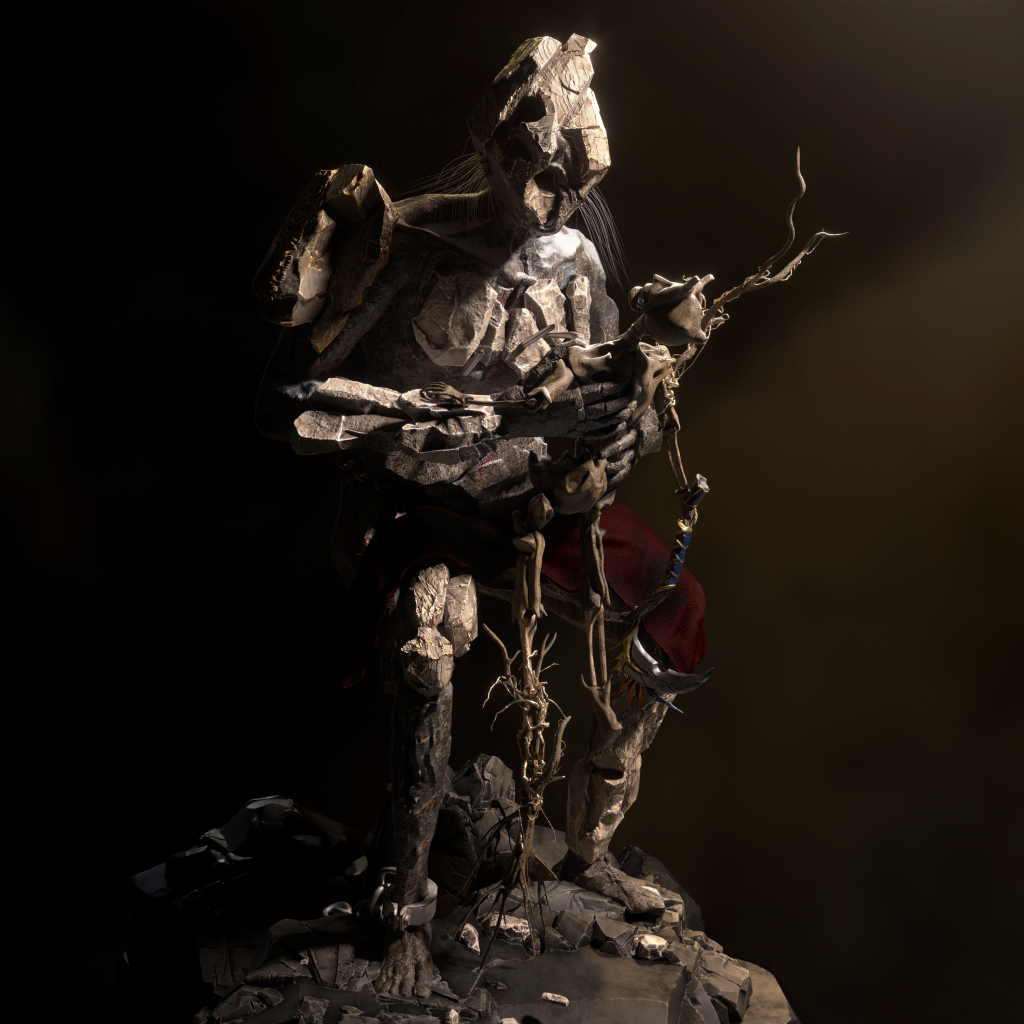
#
ÖÖÖ:
How is life in Greenland? Does the natural environment in Greenland influence your music creation?
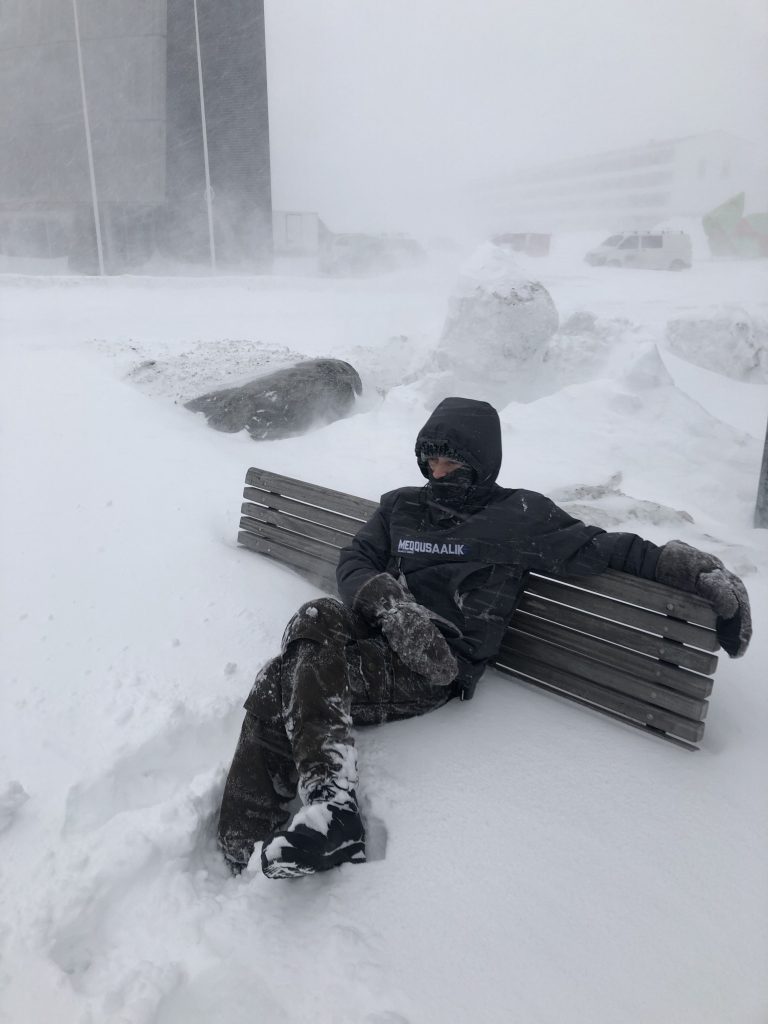
1011:
Life here is really good. The landscape is pure and enormous. Fjords extend forever, the winds are brutal, and nature rules our life. As a person, you feel very small and insignificant when you are in a place like this. All your worries, fears, pride and ambitions become meaningless. That’s a great feeling, because it put me back in my place. I spend my days programming and making art, and when I need to re-enter the real world or I run out of food, I like to hike into the fjord and do some fishing.
It feels very rare to see excerpts of nature this untouched outside of cherry picked shots in David Attenborough’s documentaries. So, I really cherish every moment I have here, and I feel like this environment provides an endless source of inspiration. At the same time, I think it would be impossible for me to capture the energy of this place musically without belittling its wonders, so I am wary of portraying it directly.
#
ÖÖÖ:
Sorry there was an accident that resulted in deafness in your right ear. How has this experience led you to discover your acoustic identity? Has it brought new angles of vitality to your artistic life?
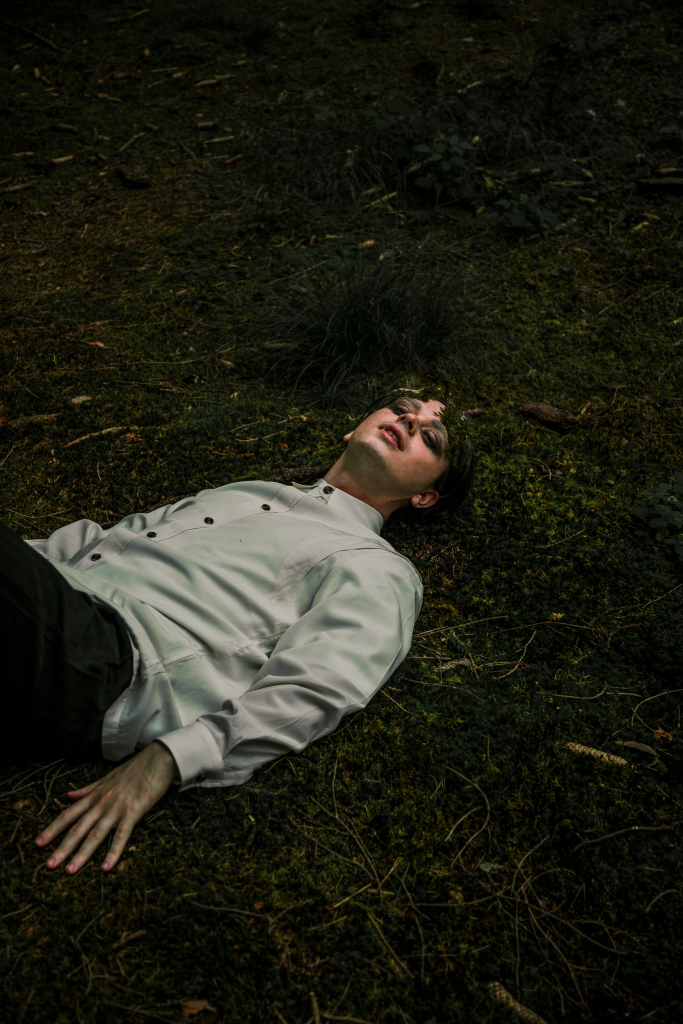
Photographer: Frederic Hermann. Makeup/SFX: Nina Bähr. Assist: Viola Boden
1011:
The first few years were very frustrating, I struggled to understand what people were saying in loud environments and music became harder to appreciate. During concerts I could only focus on about half of the musicians. Even just attentive listening became tiring, similarly to reading a book with one eye only.
As music became harder for me to access, my motivation to learn more about this artform kept growing.
And now that I have come to terms with my partial deafness, in some ways I see it as a gift – it formed my acoustic identity. During the sound design process, I am only aware of one half of the stereo field. So I unknowingly manipulate it in very nasty ways. I then cut it in half and only keep the left side, and I keep repeating that process multiple times until the output sounds like melodic metal.
Plus now I have the privilege of being able to block out anyone’s nonsense by picking where I sit at dinner tables.
#
ÖÖÖ:
Over the years, you’ve created a unique sound often described as “metal being cut, producing a melodic screech”, “blends of eerie, bleeding electronic melodies and orchestral arrangements”. As a classically trained guitarist who transitioned into electronic music production, does the classical music sense continue to shape your current music gene?
1011:
When I started working on electronic music, I tried to suppress and resist classical music notions for a long time, but eventually they took over again. The classical world was one of the main catalysts of Ancestral Harvest. Igor Stravinsky and György Ligeti, among many others, had a strong influence on the creative process behind these songs.
During these first 70 years of electronic music history, we have all been very focused on improvements within sound design. Composition took the back seat in favor of texture and synthesis. But lately it feels like we have gone through every possible iteration of a sine wave, and people are starting to integrate sound design knowledge with classical music principles. I think that’s very exciting to witness. It seems like this new knowledge of electronic sound design is now fully integrated as a functional instrument, and it is now ready to fully complement the other instruments that mankind has been developing for thousands of years.
#
ÖÖÖ:
You’ve also been creating your own 3D visuals for your projects before. Now, you are releasing the integrated project with a storytelling video game and music album. What originally motivated you to create Ancestral Harvest?
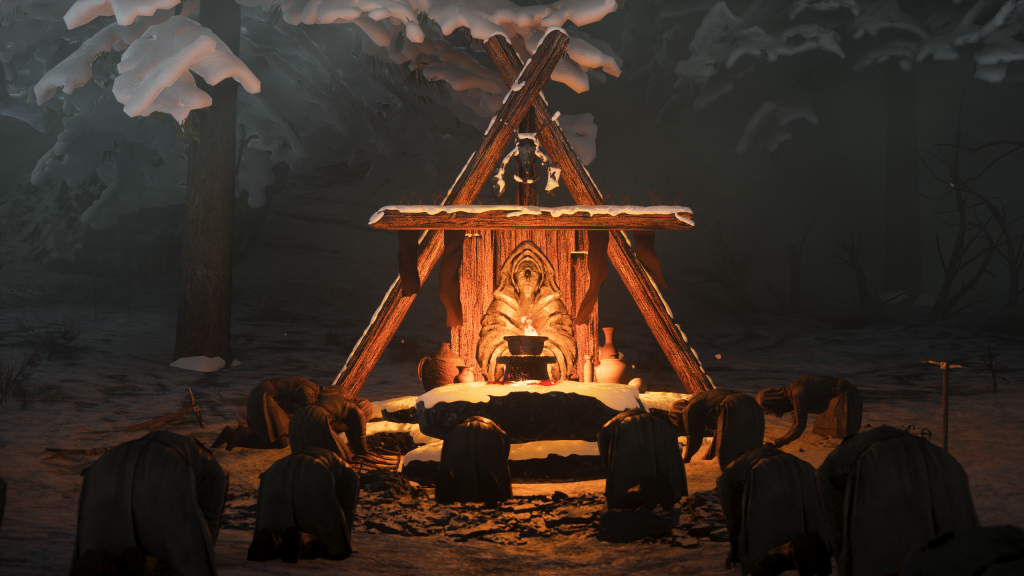

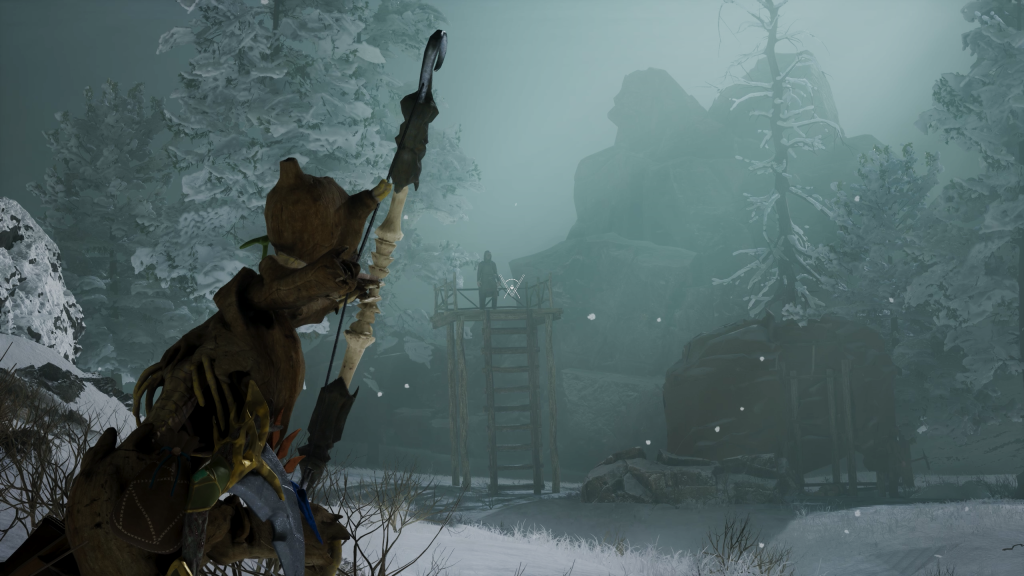
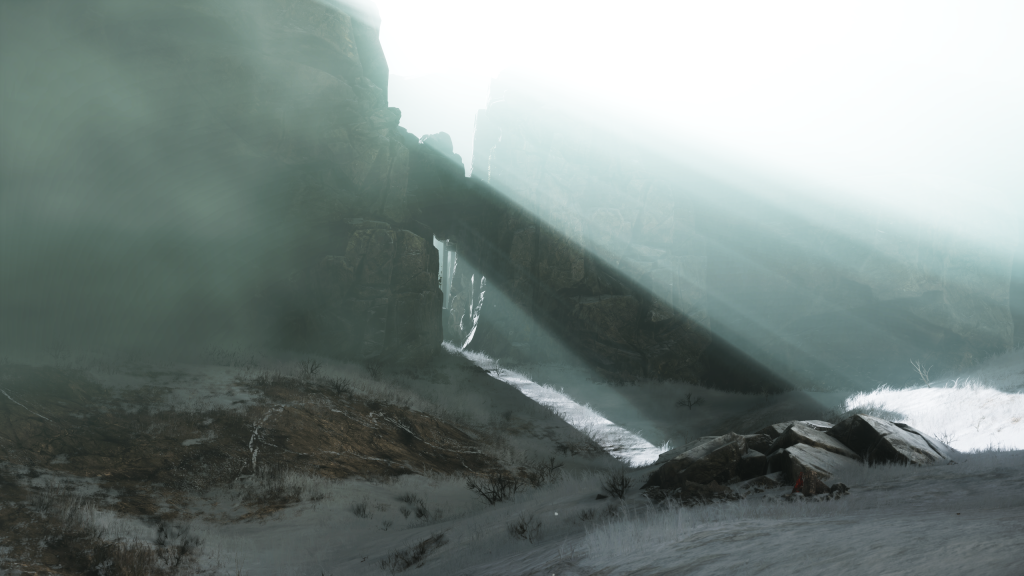
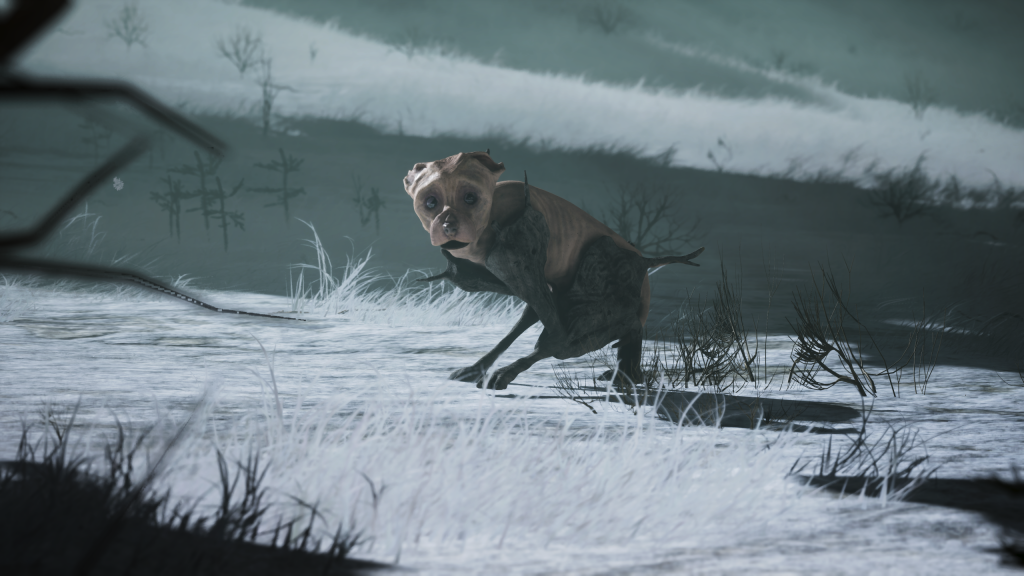

1011:
I had a lot of questions when I started working on Ancestral Harvest. I wondered why we are told to be so proud of our species’ accomplishments in the last thousand years – our so highlighted differences between micro-subcultures, and our technological, political and economic advances. These beliefs made less and less sense to me.
Our mass food production systems give people cancer. Rather than walking, we must use cars to avoid breathing in everyone else’s exhaust pipes and to escape urban areas. We live crammed in tiny little flats that we can’t afford, built with the worst materials available. We sacrifice our lives working pointless jobs to not get evicted so we can spend the rest of our time consuming micro entertainment through our phones. Our medical advances don’t improve human quality of life – they are concerned with extending life spans by solving health problems caused by eating poisoned food, being surrounded by toxic chemicals, living unhealthy lifestyles, and being mentally bombarded by the ever-competing propaganda of tech giants and world powers. We wear plastic clothes and use plastic tools that break and need changing every few months. Some of our grandparents might have committed a few of the world’s greatest atrocities. That would be bad enough if at least, like all other living beings of this planet, we minded our business. But that’s not the case; while we managed to live such empty and wasteful lives, we also completely ruined the lives of every non-human being.
And yet, humans that lived before our times are considered cavemen.
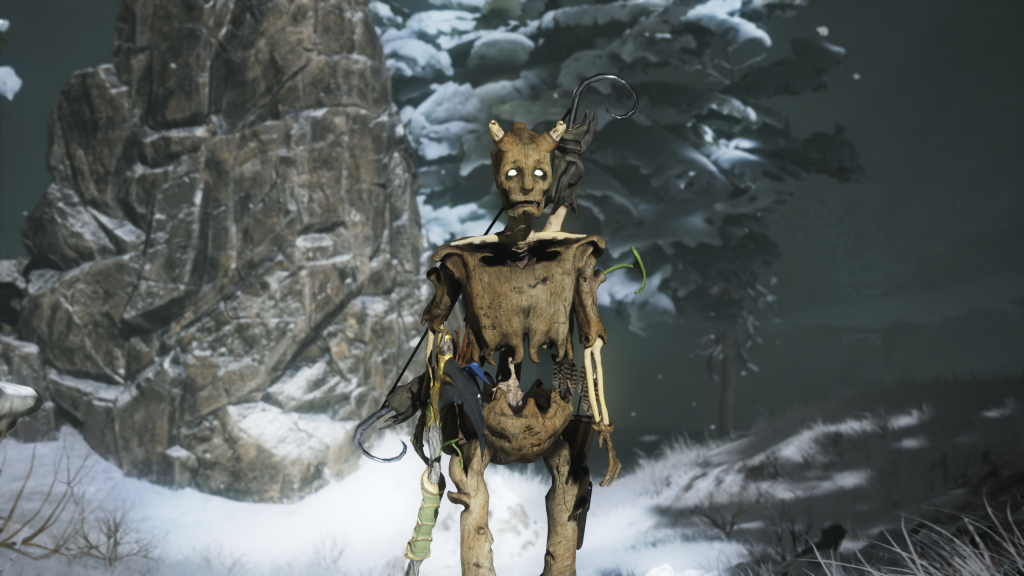

My point is that all the accomplishments of the last centuries feel like quick bug fixes to the code of modern human society, which happened to be extremely poorly written in the first place. There is nothing that our peer-reviewed science has explained that our ancestors weren’t already aware of beforehand. In short, there is nothing that this modern world can give us, other than bad tools to solve problems created by this modern world itself.
Now, let’s go back 50 thousand years. People are self-sufficient hunters and gatherers. They can easily navigate across vast landscapes. Their teeth are strong from chewing hard meat. They possess knowledge passed down generations on how to make remarkable tools from their land. They are connected to the food they eat, and they can survive with what they have, from the Arctic to the Equator. The world looks beautiful and untouched, and humans have everything they need at their disposal. There is no need to escape from your life for two weeks every summer just to feel at peace with yourself again.
Ancestral Harvest explores the pivotal moment in history when humans decided to forego the natural balance, and embarked on the never-ending quest to get more than what they give to this world.
What motivated me to write the story of Ancestral Harvest is that many people feel a similar sense of distrust and disappointment in the mechanisms of our modern world. I hope that the layers of this story will help others cope with these beliefs, and maybe turn their own pain into action.
The motivation behind the choice of a video-game as the main medium for the project, is that I wanted to create a music and art experience that people could be in, and be a part of, rather than passively watching or listening to it.
#
ÖÖÖ:
What do the 9 songs that narrate this story evoke and transit? How do they function within the game?
1011:
These songs function as summaries that capture the essence of each chapter. Some are only obtained in the form of memories upon completing one of the game’s episodes, while others are programmed to be executed within certain moments of the playing experience. For instance, you will only hear variations of one song’s intro section until you complete the first part of a puzzle, and then the main section will start playing once completed. Player actions function as musical stingers within the composition, enabling the audience to participate in the music and visual experience. While there are 9 core tracks, there is also much more music to be found and interacted with.
#
ÖÖÖ:
The story of Ancestral Harvest explores the relationship between the natural world and the world inside man’s mind, the journey of death, rebirth, sin, trauma, and cure.
How does the storyline progress?
1011:
The storyline is meant to progress across multiple layers of realities. There is the human problem – how mankind is causing great harm to nature. But that’s just the base layer. On top of that, there’s another layer dedicated to Death’s (the game’s main character) story, and its mission to heal an eternal wound within its chest. The story of Death works as a two-fold gateway between the traumas and suffering we inherit from our ancestors, and the trauma that our planet inherits from human existence.
While I don’t want to spoil how the story develops, I can say that it starts out in a desolate bog, and it then progresses through worlds both physical and non-physical.
#
ÖÖÖ:
The players will embody the main character as “Death” with its eternal fate. How is the character portrayed? Is there a metaphorical significance attached to it?
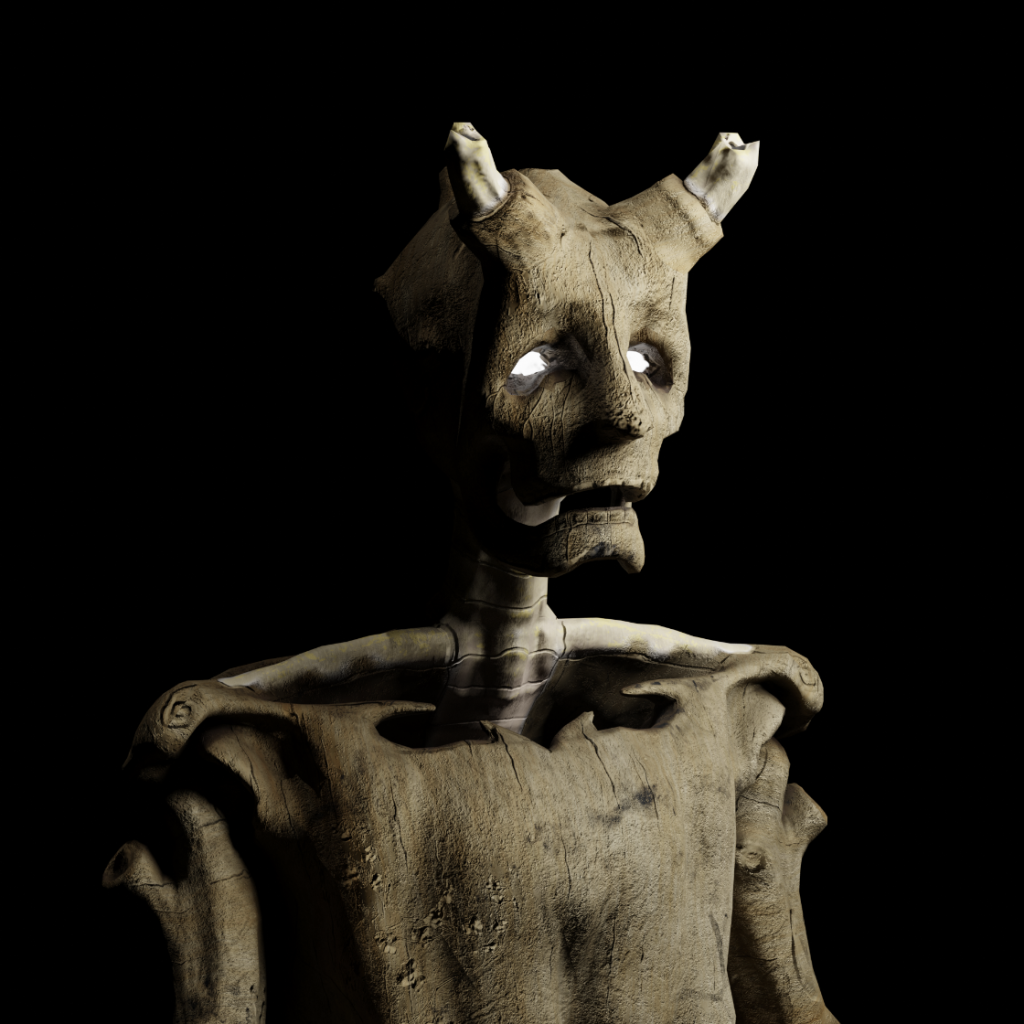
1011:
Death is portrayed as a biped made of bones and dressed in wooden armor. It is scared, frail, and wary of its surroundings. Rather than being an all-knowing death-bringer, Death in Ancestral Harvest is more like a naïve, worried child, who has no idea about how to deliver souls to the underworld. Its symbolic significance is tied to time, change, and the universal truths that humans are too afraid to face.
#
ÖÖÖ:
The main lines of Ancestral Harvest reflect an imaginative yet heightened reality of the world we live in. Like a surgical scalpel, these reflections precisely uncover the core issues and potential solutions that exist within our human collective life. The initial premise of the game already disrupts a fundamental tool that humans consider crucial for constructing civilization – language.
In Ancestral Harvest, language is depicted as a demon entity parasitically embedded within human’s minds, it spreads by communication and pushes humans to leave their natural ways. Could you elaborate on this background narrative further?
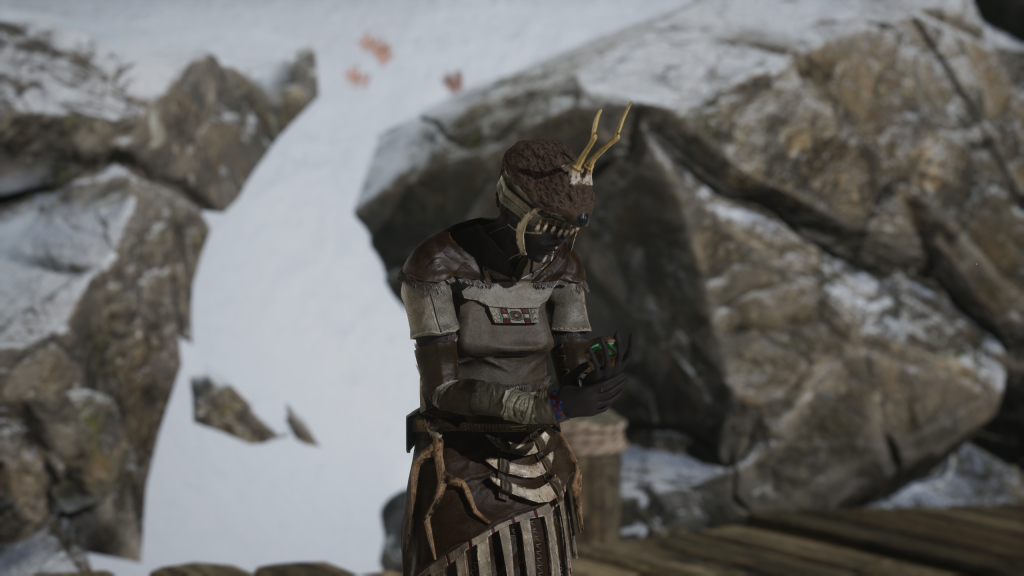
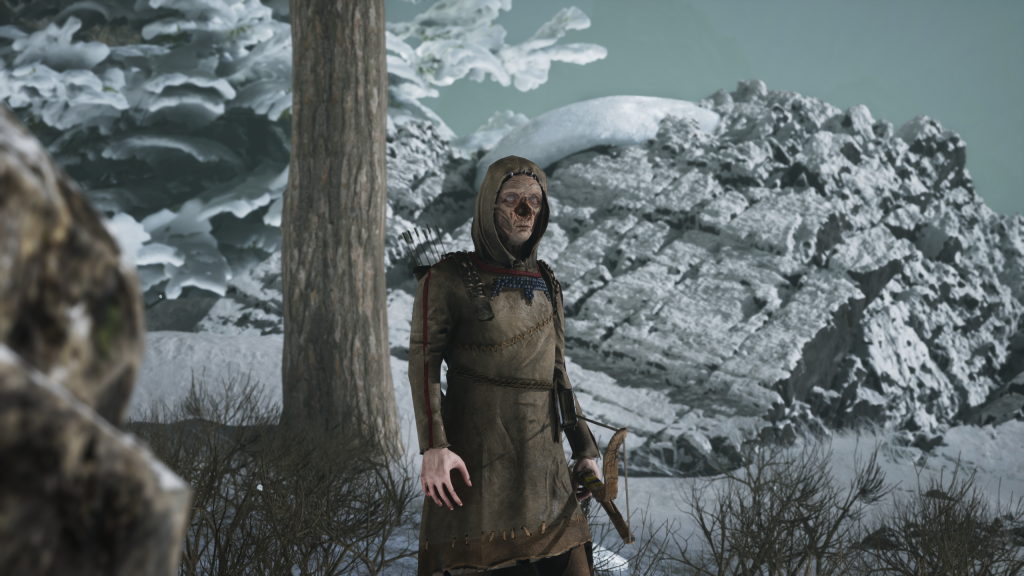
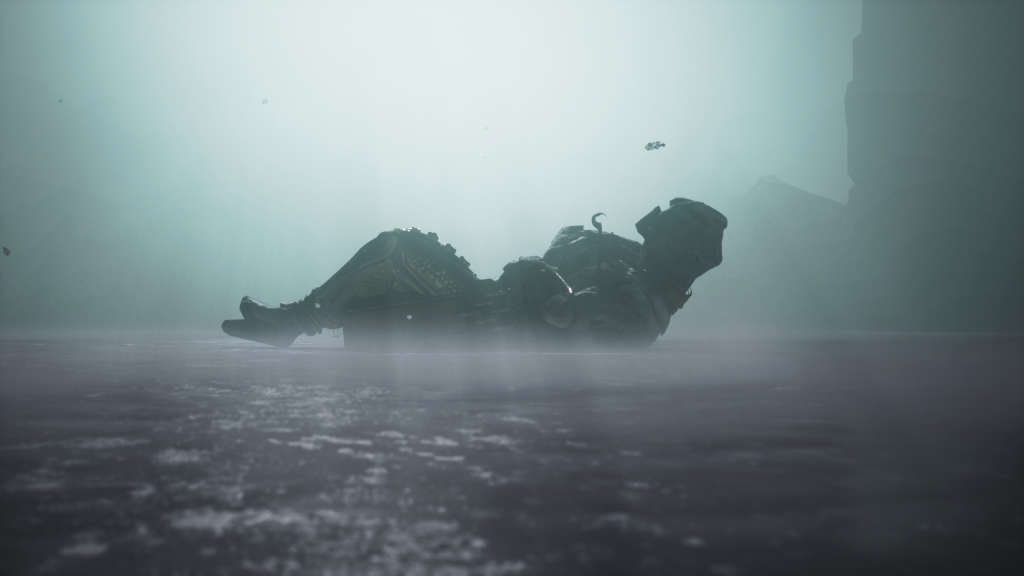
1011:
I was always a big fan of William Burroughs’ literature. Even though his work was often extremely unhinged and hard to decipher for me, his reflections on the modern world shaped a lot of my own ideas. There is one concept specifically that is prevalent across many of his works, and that is the idea that Verbal Language is a virus. This resonated very deeply within me, and it is something I have dwelled on ever since I first stumbled upon it.
My understanding of his idea is that verbal language is an entity that infiltrates and tempers with the thoughts of the human mind. It forces us to convert our boundless, abstract, and pure thoughts into phonetic gibberish, whether that’s spoken within our minds or to other people. During this transformation from thought to word, our intentions become tampered with. we can’t communicate what we are actually thinking. We are limited to the words that vaguely encapsulate the richness of our intentions. Similarly, our thoughts also become tampered. That’s because during our lives, most of our experiences come from speaking with other people, who implant their own words within our minds. As a consequence, we start thinking in words. And our thinking patterns become limited and supervised by logical verbal language patterns and meanings. So, we become enslaved by the word. Verbal language acts as the middleman between our internal and external interpretations of reality.
While this sounds very abstract, you can observe how verbal language changed humanity by looking at it from a historical perspective. The “speech” gene of our ancestors was inherited at about the same time when humans started leaving the inlands of our ancestral homes. The spread of this gene began altering the physiology of the human mouth as well as our dietary habits. Much like the parasites that hijack the minds of animals for their own survival, the speech gene completely changed mankind’s behavior.
Ancestral Harvest’s theory is that verbal language is more than just a gene. It is a parasitic entity with festering needs that must be met, able to manipulate its host’s perception of reality for its personal gain. After latching on to humans, it forced them out of their perfect balance with the natural world, and turned our species into a blind vessel whose purpose is to be the most comfortable host for this parasite to survive on. That’s because it should be impossible for us humans, who are as part of the natural world as any other living being, to be in such great disharmony with the land we came from. It seems easier to place the blame on an external, abstract parasitical being that latched on to us, and hopefully there is a little truth to it.
#
ÖÖÖ:
How do these metaphors in the game resonate with your personal worldview?
1011:
The game has many metaphors that reflect on humans’ relationship with the natural world and their inherited suffering. Let’s take the chapter of Forlorn Mountain, the single coming out this Friday. I don’t want to impose interpretation on the entire chapter, so I will just focus on the first layer of the interaction between Death and the Soul of the Mountain. The Soul of the Mountain is the personification of our planet’s rock. It cries over how it had offered all its compounds for life to thrive, and yet humans began exploiting these same compounds for empty purposes. This passage links back to my worldview in the sense that I am very critical of every new exploit of natural resources: whether it’s underwater mining, cobalt, or the next best thing, the idea of destroying an environment to extract new resources to meet our 21st century demands will never work. It’s one of the many forms of attempting to mend the broken fabric of the code of modern society with bad bug fixes. There are things we just aren’t meant to have, but we just won’t accept it.
#
ÖÖÖ:
What is the exit of the “original sin”? How can humans go back to their origin?
Maybe through Ancestral Harvest we will find an approach to transcend.
1011:
I don’t think there is a solution. The essence of all life is the great frictional chaos that sparks from the collision of opposite forces, whether you want to call those good and evil, rock and water, or the planets that collided into one another and formed the earth we are reading this article on.
While I don’t think it’s possible to go back, I hope that we will be able to recognize the demons within us that convince us to always want and need more, while they make us weaker and lesser. I hope that Ancestral Harvest will give us a chance for introspection. An exit within the timescale of our lives and records seems unlikely, but maybe, once we are on the true final brink of extinction, the human perspective will change.
The most important point that I hope Ancestral Harvest will get across is to start conversations. I think that so many of us are so unhappy because of how this modern world has played out. And they are told that it’s the only way, and either they fit into the mold, or they get discarded.
The only fulfillment we can have in our short lives lies in what we have left of the real, natural world. Rather than chasing what we are expected to want out of the suspended reality that we have been brought up into, I hope we can find ways to have more clarity and joy by talking about how we treat nature and each other.
Artist Info
1011
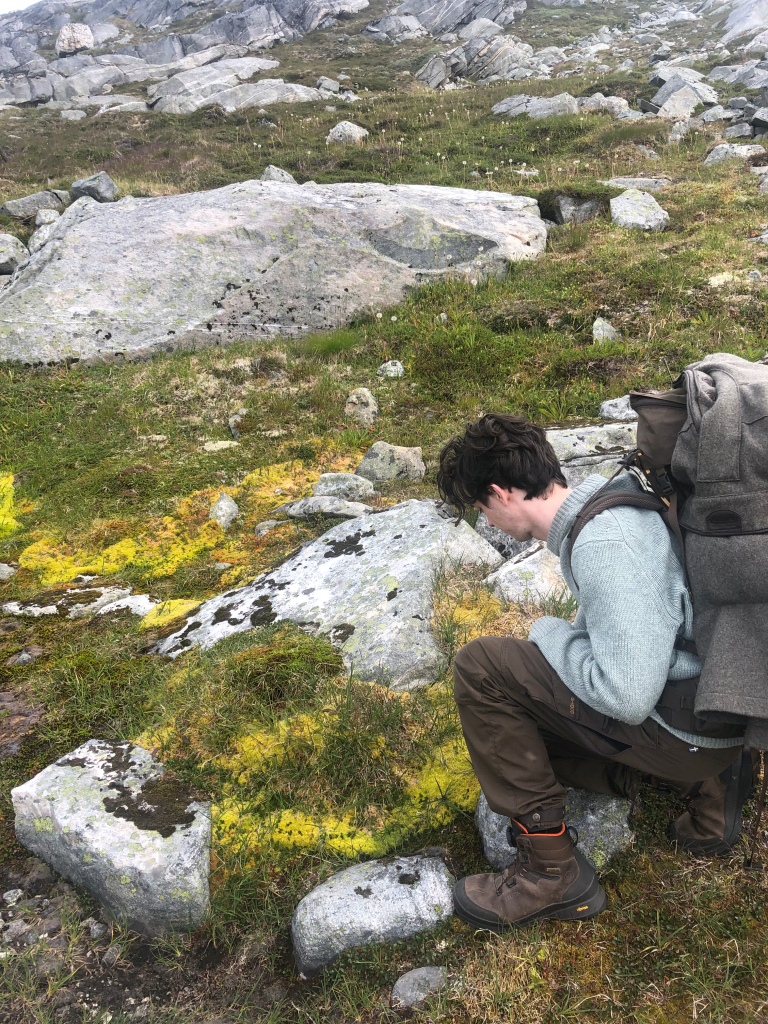
Evoking the rawest creativity in human nature, ÖÖÖ is growing in primitive future.


